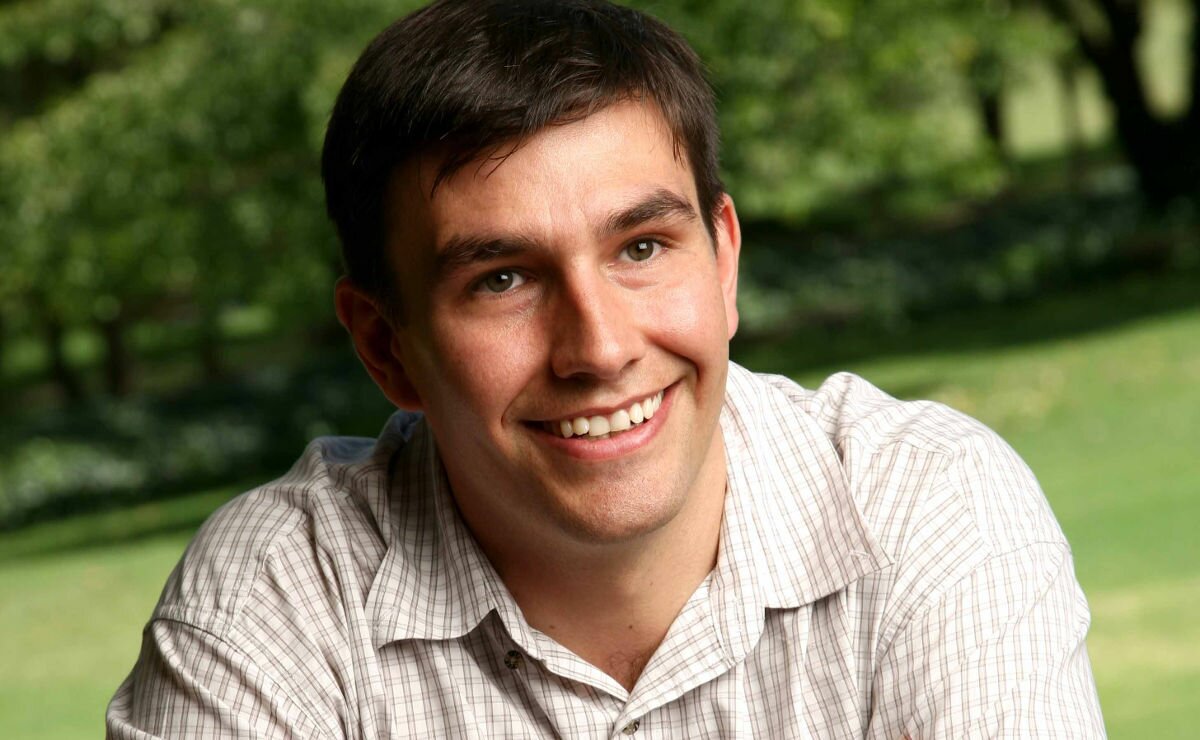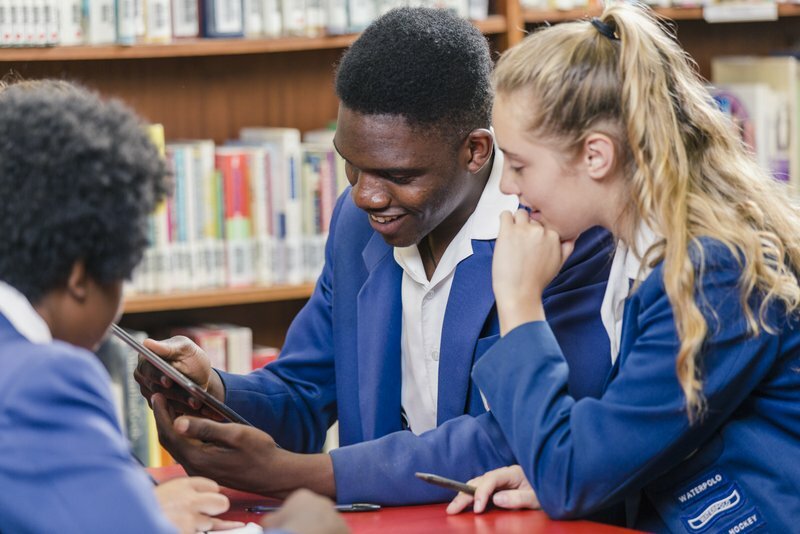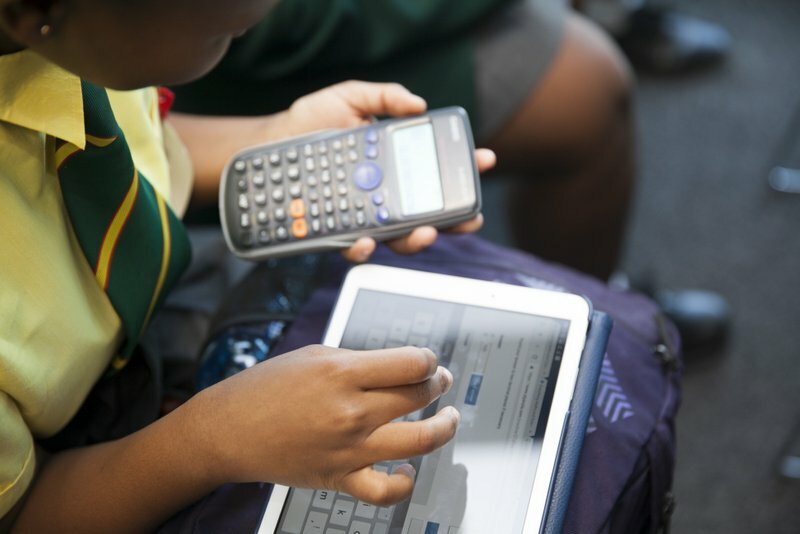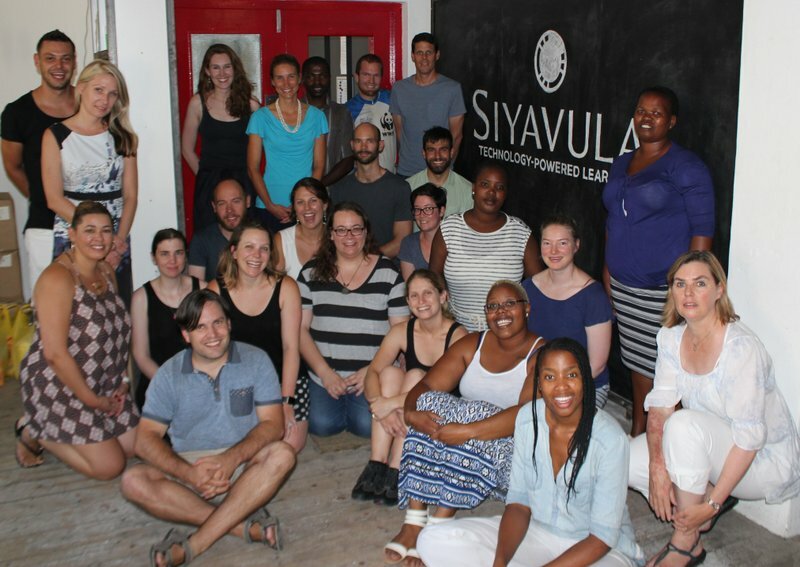Mark Horner and Siyavula: Opening Access to Education
by Chris McGivern and SF Team, 12 December 2017

Imagine yourself as a young student from an under-resourced community in South Africa. You are bright, eager to learn and hopeful your education will lead to opportunities for a better life.
However, circumstances are against you. Your school and parents struggle to afford the resources you need, and teachers are ill-equipped, under-trained and lack the speciality knowledge you need to master your subject. The chances are you will never know what you can achieve.
You are, bluntly, amongst a lost generation of learners in South Africa, and you feel the system is designed to limit your life chances, not enhance them.
A quality education for all
Mark Horner, Director and CEO of Siyavula and a former Shuttleworth Foundation fellow, believes he has a solution to the chasmic difference between a token education and a quality education. We believe he does, too.
Siyavula is a social enterprise offering free and open textbooks in maths and science for students and teachers, from grades 4-12.
Starting life as a Shuttleworth Fellowship project headed by Mark Horner, the Siyavula story is a tremendous example of what you can achieve with open systems, collaboration and hunger to change the world for the better. And by embracing open, it is in your power to build great things on the foundations of a relatively small idea.
An open vision for change
For Mark Horner, that kernel of an idea arrived in 2002, after a chance meeting with a group of enthusiastic students from a poorly resourced rural community. They were keen to learn but had no access to textbooks or quality teaching at school. On further investigation, Mark found these inequalities widespread across South African schools and, alongside a group of like-minded graduate students, mulled over some big questions: Is it possible to redress the balance and give all students the tools they need to thrive? And how, exactly, can you even get started on a project of such magnitude?
Open-source software offered a possible solution. As a nuclear physicist, Mark was part of broader physics community already benefitting from open-source utilised for research development, information sharing and teaching. He and the team knew it could be used similarly to create openly-licensed, collaborative textbooks for students and teachers alike.
Not only did open-source software offer flexibility, low-cost entry and the option of widespread participation, but it also acted as a catalyst to get things off the ground.
“Open is an enabler for you. It gets you out of the starting blocks, and it’s agile, fast and efficient.”
– Mark Horner, Director and CEO of Siyavula
Over the next five years, Mark and a small, core team of volunteers:
- Organised hackathon weekends to kickstart the Free High School Science Textbook project
- Engaged and managed over 100 qualified volunteer contributors from around the world
- Established workshops, participation groups and networking events to encourage teacher/student feedback
- Released high-quality, openly licensed textbooks for Grades 10-12 in maths and physical sciences in print and online

Shuttleworth funding and the birth of Siyavula
The Foundation’s relationship with Mark began in 2005. Impressed by his desire to liberate information and education for students from all backgrounds, he was a natural fit for us. Not only did Mark share our vision of a better, fairer society based on open systems, but he also met several of our key funding benchmarks:
Challenges the status quo: why should common human knowledge be locked behind expensive, copyrighted student textbooks?
Believes in the power of collaboration: can those with collective knowledge create valuable resources for those without?
Explores potential of open beyond software: how can you go beyond traditional open-source software and put physical textbooks in a student’s hand?
Proves capability: do you have what it takes to deliver your ideas?
By 2007, on completion of the first set of textbooks, our support helped forge a breakthrough: books tested alongside the curriculum with teachers and students in the Durban area.
“Funding gives you opportunities. It paid for the production of textbooks, which trialled in 20 schools for a whole term.”
– Mark Horner, Siyavula
Every school gave positive feedback on the content and quality of the books. Contrary to mainstream thinking, it suggested collaborative, free and openly-licensed resources could have a place in schools.
With proof of concept, Mark joined us for a workshop panel that led to the Cape Town Open Education Declaration. We also asked him to head up a fellowship project, with a brief to create free and open textbooks for all subjects and grades in South African schools.
Mark named the project ‘Siyavula’ - the Nguni word for ‘We are opening.’

Freedom to challenge
Creating textbooks is one thing, but getting them into the system is another entirely. There are considerable challenges when you push for change in established sectors like education.
During his fellowship, Mark needed time to explore ideas, try out technology and meet with educators, students, and policymakers.
Legal frameworks, licensing, curriculum standards, political demands, stakeholders, social attitudes - all posed complex and seemingly insurmountable obstacles.
These complications often prove a challenge to funding relationships. Tackling the big issues of poverty, inequality and human rights involves a great deal of uncertainty, and the ambiguous nature of the process lacks appeal to traditional philanthropy models.
Many philanthropic organisations impose strict time limits and cutoffs for projects, and will walk away at the first sign of a hump in the road. In short, they lack the desire to form long-term strategies for real system change.
Our philosophy is different.
“The Foundation gives you space to think, experiment and network.”
- Mark Horner
To forge an enlightened, educated world, you can’t shy away from obstacles, problems and failures. They do not signal an end - they are opportunities to think again.
As a Foundation Fellow, we will back you, have faith in your vision and encourage you to pursue your ideas.
Independence and reinvention
In 2009, the Foundation restructured its funding philosophy, and Siyavula switched from an internal project to following a new Fellowship model. And, as the end of Mark’s fellowship approached, we gave him the opportunity to take Siyavula and all its resources to become an independent company, which registered in 2011.
During this fellowship period, a significant opportunity arrived. After a country-wide teacher’s strike, the South African government requested help - could Siyavula provide them with textbooks for high school students? In little over a week, the team and a group of volunteer scientists and mathematicians set to work on proofreading and error finding, and, despite the near-impossible request, they managed to pull it off.
However, it wasn’t until 2012 - almost a full decade since the initial idea - that the first set of Siyavula books arrived on desks. After receiving investment from PSG, Mark and the team had the green light and the government printed and distributed 2.5 million textbooks to every state school in South Africa.
After this level of exposure, there was a huge increase in visitors to the company website. It made sense to extend their availability to smartphones, tablets, and even the most basic WAP-enabled feature phones.
Siyavula also recognised the textbooks had limitations. While excellent curriculum tools, the ‘question and answer’ and broad format of books left many students unable to master their subject truly. Mark and the team realised to drive up learning outcomes in under-resourced schools, textbooks needed to change.

Siyavula Practice and a bright future
In 2012, Mark and the team began work on an interactive system they called Siyavula Practice to enable students to develop real mastery of their subject.
Using machine learning, the technology sits on top of the textbook content and gives students precise examples and demonstrations based on their individual needs. The system also supports teachers, who gain immediate insight into their student’s progress to uncover difficulties and offer practical, laser-targeted help.
The pioneering technology is low-cost and designed to be accessible to all schools, students and teachers, including those from marginalised and rural communities.
Today, Siyavula provides access to education for millions of students in South Africa and beyond, with:
- A range of 14 Siyavula open textbooks covering maths and science in English and Afrikaans
- Books used in every government school and on 10 million desks in South Africa
- Course content used, adapted and shared by teachers around the world
- A Lean Data survey finds 97% of users reporting improvements to their lives thanks to Siyavula Practice
- A grant from Google.org to extend free service into Nigeria
Alongside fellow investors the PSG Group and the Omidyar Network, the Shuttleworth Foundation is proud to have been part of the Siyavula story, and look forward to its continued success. We remain on the board as advisors and significant shareholders to this day, with any profits we make directed towards open-driven, social projects for our Fellowship intake.
“Your success feeds back to the social investment model that helped make your project possible.”
– Mark Horner
For Mark Horner, getting to the Siyavula of today has involved a long journey from the pizza-fuelled hackathon that inspired the very first open science textbook. But that original idea formed the basis of everything he and the team are doing now.
If you have an idea for social change, based on open thinking and systems, it’s OK to start small. It’s the big vision of how you - and others - can build on it in the future that counts, and the Foundation’s support will help you develop your ideas to their fullest potential.